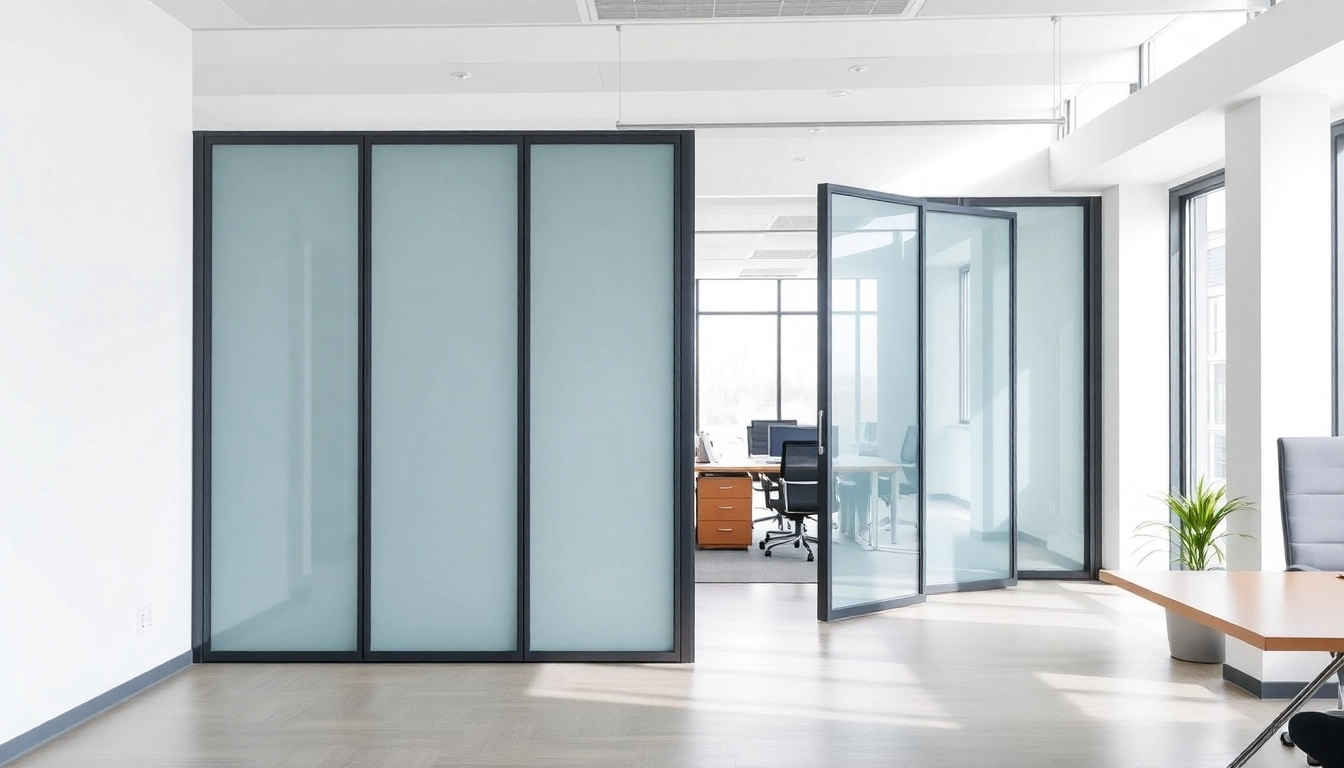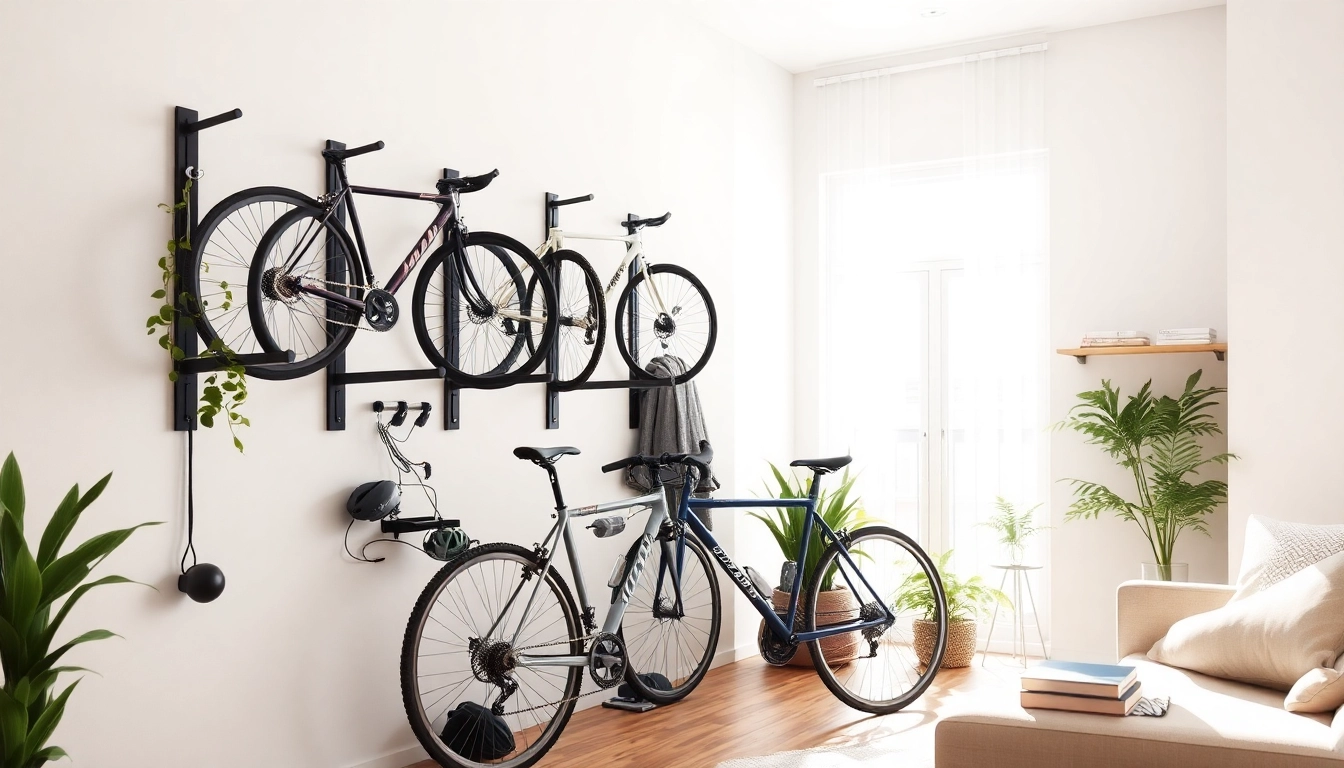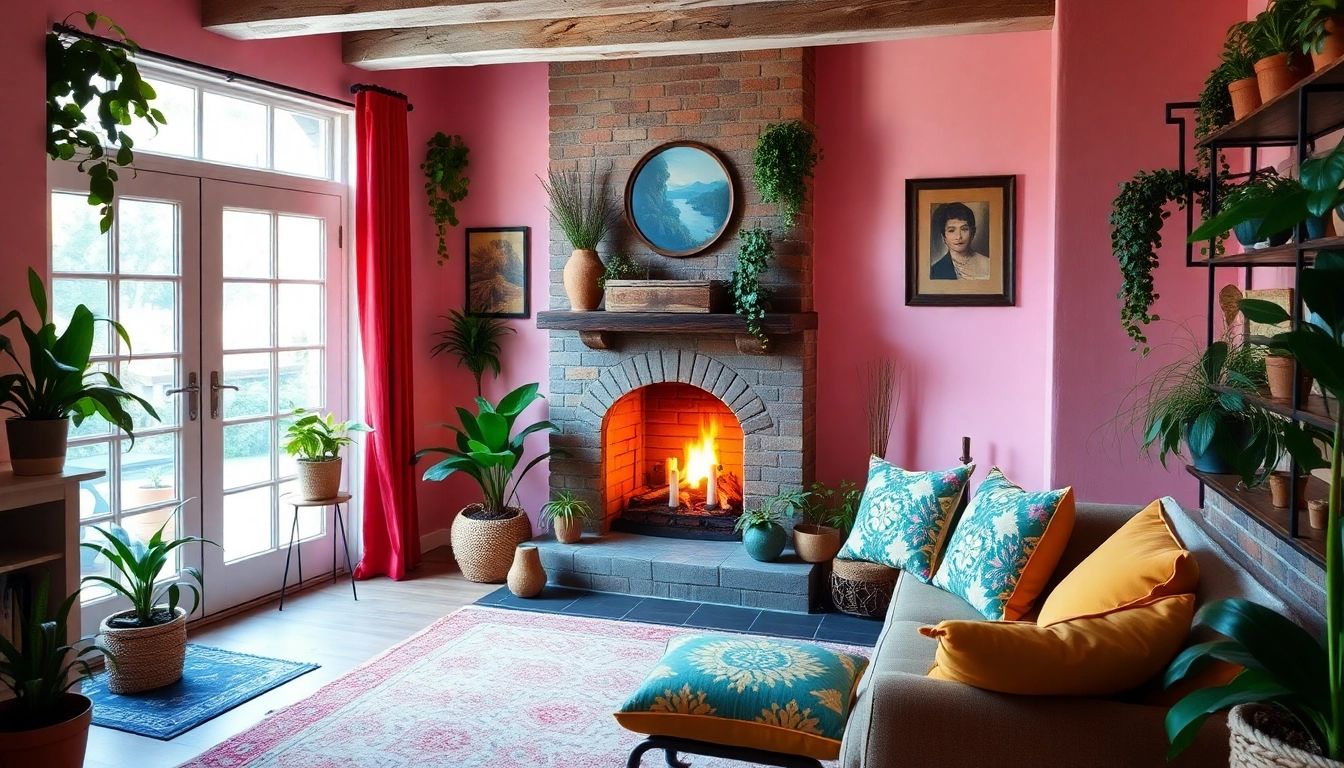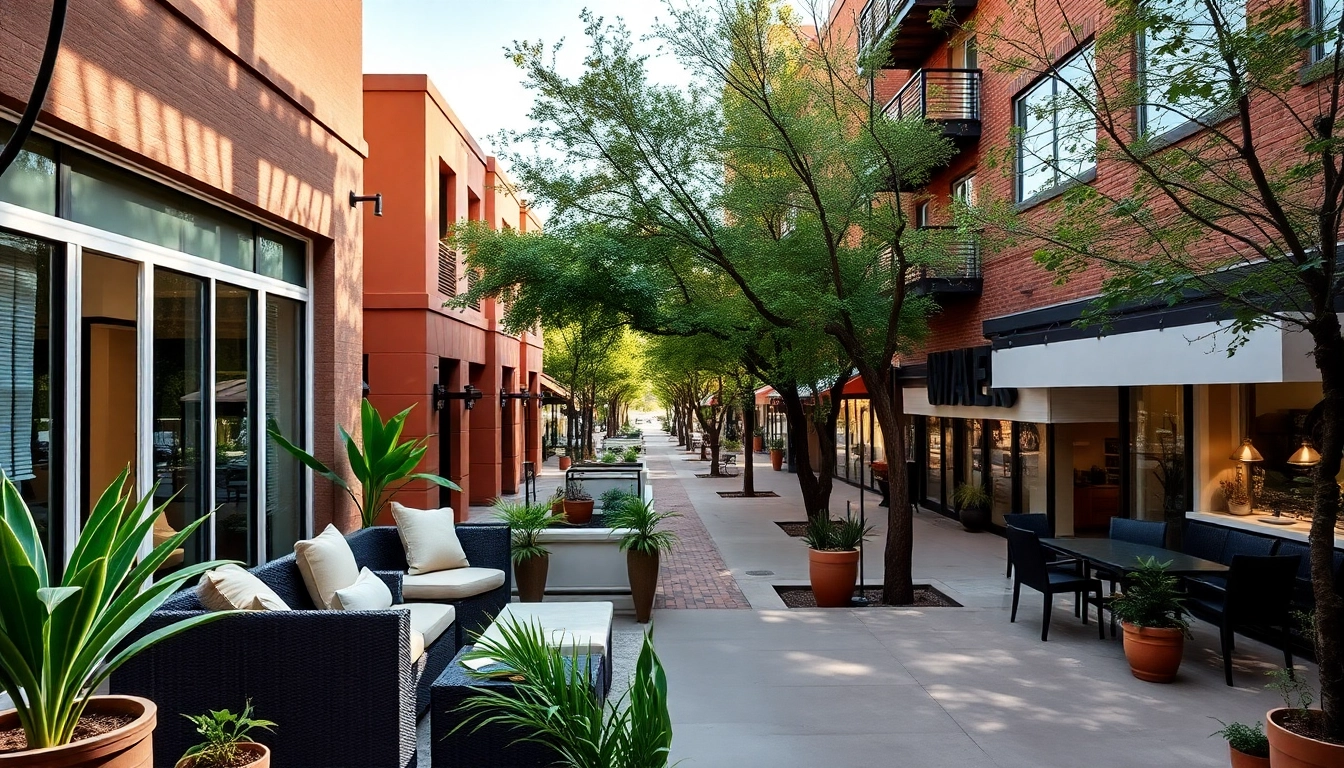Understanding Folding Partition Walls
Folding partition walls are innovative solutions designed to create flexible spaces within residential and commercial environments. These walls can be easily maneuvered to divide or open up a room, providing adaptability according to the user’s needs. Folding Partition Walls serve as an excellent alternative to traditional, fixed walls, allowing for dynamic reorganizations that can enhance functionality and aesthetics in any setting.
What is a Folding Partition Wall?
A folding partition wall, sometimes referred to as an operable wall, sliding wall, or concertina wall, is a movable partition that can be folded or collapsed to change the layout of a space. They are typically constructed of lightweight materials such as vinyl, fabric, or glass, framed within a metal or wooden structure. This design permits easy operation—users can simply slide the panels along a track to open up or partition off areas. These walls are available in varying sizes, finishes, and configurations to suit specific applications.
Benefits of Using Folding Partition Walls
Utilizing folding partition walls in both commercial and residential contexts offers several advantages:
- Space Flexibility: The primary benefit of folding partition walls is the ability to adapt spaces quickly. Rooms can be reconfigured to serve multiple purposes—from open conference spaces to individual meeting rooms—efficiently meeting fluctuating demands.
- Improved Acoustics: Many folding partition walls come with soundproofing options, making them ideal for environments where privacy and concentration are vital, such as offices and educational facilities.
- Cost-Effective: Rather than constructing new walls, folding partitions enable businesses and homeowners to maximize existing spaces, saving on materials and labor.
- Design Versatility: Available in various materials and finishes, folding partition walls can complement any interior design, enhancing the overall aesthetic of a space.
- Easy Operation: Modern folding partition systems utilize advanced technology, making them easy to operate. Most feature user-friendly tracks and mechanisms for seamless movement.
Common Applications in Residential and Commercial Spaces
Folding partition walls find applications across different environments, including:
- Offices: In corporate settings, folding walls can create temporary meeting rooms or collaborative workspaces, supporting dynamic team formations.
- Educational Institutions: Schools and universities utilize these walls to divide classrooms for various teaching methods, ensuring a conducive learning environment.
- Hospitality: Hotels and banquet halls benefit from folding partitions by allowing for flexible event spaces that can easily be adapted for different group sizes.
- Residential Use: Homeowners often incorporate folding walls to separate living spaces, such as changing a large living room into an area for guests while maintaining privacy.
Choosing the Right Folding Partition Wall
Factors to Consider Before Purchase
When selecting a folding partition wall, several factors should be taken into account to ensure you choose the best option for your needs:
- Space Requirements: Measure the area where the partition will be installed to determine the appropriate dimensions and configuration.
- Operational Mechanism: Assess whether you prefer manual or automatic operation; automatic systems often provide enhanced ease of use but may come at a higher price.
- Sound Insulation: For environments that require privacy, look for partitions with soundproof features or high STC (Sound Transmission Class) ratings.
- Material Options: Consider aesthetic preferences and durability. Options range from fabric and vinyl to glass and solid materials, each offering varying levels of privacy and light penetration.
- Cost: Establish a budget before exploring options, as pricing can vary significantly based on size, materials, and customization.
Types of Folding Partition Walls Available
There are various types of folding partition walls, catering to different use cases and environments:
- Accordion Walls: These traditional folding walls are designed to fold in on themselves like an accordion and can be easily operated manually.
- Operable Glass Walls: Offering a modern aesthetic and natural light penetration, glass folding walls are ideal for upscale commercial spaces or modern homes, allowing a transparent division of area.
- Acoustic Walls: Specifically designed to optimize sound control, these walls are particularly beneficial in education or performance venues where noise reduction is essential.
- Solid Folding Walls: Made from solid panels, these partitions provide maximum privacy and security, perfect for confidential meetings and private spaces.
Customizing Your Folding Partition Wall Solution
Customization options allow for tailoring folding partition walls to suit specific needs:
- Dimensions: Custom sizing ensures the partition wall fits perfectly in the intended space, complying with architectural designs.
- Finishes: Choosing different finishes can enhance interior aesthetics and ensure that the partition complements existing furniture and decor themes.
- Technology Integration: Adding automation features such as electronic control or mobile apps can simplify operations, making it easier for users to manage space adjustments.
- Color Options: Custom color choices further enhance visual appeal and ensure the partition aligns with the overall color scheme of the environment.
Installation and Maintenance
Preparing for Installation: Steps and Considerations
Proper installation is crucial for optimal performance. Here are steps to prepare for installation:
- Assess the Space: Ensure that the installation area is measured accurately and that there is sufficient clearance for the folding mechanism.
- Choose the Right Wall Type: Select a folding partition that fits the functional requirements and aesthetic desires of the space.
- Check Infrastructure: Inspect any necessary structural support systems, such as wall tracks or ceiling mounts, ensuring they are secure and able to hold the partition.
- Clear the Area: Remove any obstacles, furniture, or fixtures that may hinder installation.
- Professional Installation: Consider hiring professional installers to ensure the task is performed correctly, minimizing the risk of damage.
Maintaining Your Folding Partition Wall
To ensure longevity and optimal functionality, regular maintenance of folding partition walls is necessary. Here are some tips for effective maintenance:
- Regular Cleaning: Dust and wipe down surfaces regularly. Depending on the material, use appropriate cleaning solutions to avoid damage.
- Inspect Mechanisms: Frequently check installation tracks and folding mechanisms for any signs of wear or damage; lubricate as needed.
- Monitor Performance: Test functionality by opening and closing the partition. Address any issues immediately to prevent further complications.
- Professional Servicing: Schedule periodic checks by professionals to ensure all components are in functional condition and address potential issues proactively.
Troubleshooting Common Installation Issues
During installation or usage, several issues may arise. Here are some common problems and their solutions:
- Misalignment: If panels are misaligned, check the track installation to ensure everything is level. Adjust rollers as necessary.
- Sticking Mechanism: Should the wall become cumbersome to operate, inspect for dirt accumulation in the tracks, or apply lubricant to the mechanism.
- Panel Damage: If panels sustain damage, they can often be replaced individually instead of replacing the entire system, which minimizes additional costs.
Cost Considerations and Budgeting
Initial Costs vs. Long-Term Savings
The initial investment in folding partition walls can vary based on materials, custom features, and installation costs. However, the long-term savings often justify this outlay. Folding partitions can significantly reduce the need for complete renovations, as they provide adaptability without permanent changes to your space. Businesses can also save on costs related to heating, cooling, and lighting by managing space more efficiently.
Budgeting for Folding Partition Wall Projects
Budgeting for a folding partition wall does not need to be complicated. Here are steps to consider:
- Determine Your Needs: Understand your requirements, including sizing, material, and functional specifications.
- Conduct Market Research: Compare prices from various suppliers to ensure you find suitable options within your budget.
- Include Installation Costs: Remember to factor in the cost of installation, whether you choose to carry it out yourself or hire a professional company.
- Consider Hidden Costs: Investigate potential hidden expenses such as maintenance, upgrades, or additional accessories.
Comparing Costs: DIY vs. Professional Installation
When it comes to installation, you can either opt for DIY methods or hire professionals:
- DIY Installation: This approach can save money but may require specific tools and knowledge. It’s best for those who are comfortable with hands-on work and have the right skills.
- Professional Installation: Hiring professionals may incur higher costs upfront but can prevent future issues and ensure that the partition wall is installed correctly and efficiently.
Future Trends in Folding Partition Walls
Innovative Features and Technologies
The folding partition wall market is evolving, with ongoing innovations in design and functionality. Future trends include:
- Smart Technology: Integration of smart technology that allows remote operation or automation options is becoming increasingly popular.
- Eco-Friendly Materials: Manufacturers are exploring sustainable and recycled materials for constructing partition walls, contributing to greener architectural practices.
- Personalization: Customization options will broaden, with more features being offered, such as integrated shelving or enhanced acoustic capabilities.
Eco-Friendly Options for Sustainable Spaces
As sustainability becomes paramount in construction, folding partition walls are now available in eco-friendly options, made from sustainable materials or designed for energy efficiency. By investing in such partitions, spaces can reduce their carbon footprint and support the green movement across industries.
How Folding Partition Walls are Shaping Modern Design
Folding partition walls are increasingly being embraced in modern architectural concepts. They facilitate open space designs that prioritize both functionality and aesthetics. As organizations endorse flexible working environments and collaborative spaces, folding walls are becoming essential elements in contemporary design practices, allowing spaces to adapt to changing needs fluidly.



